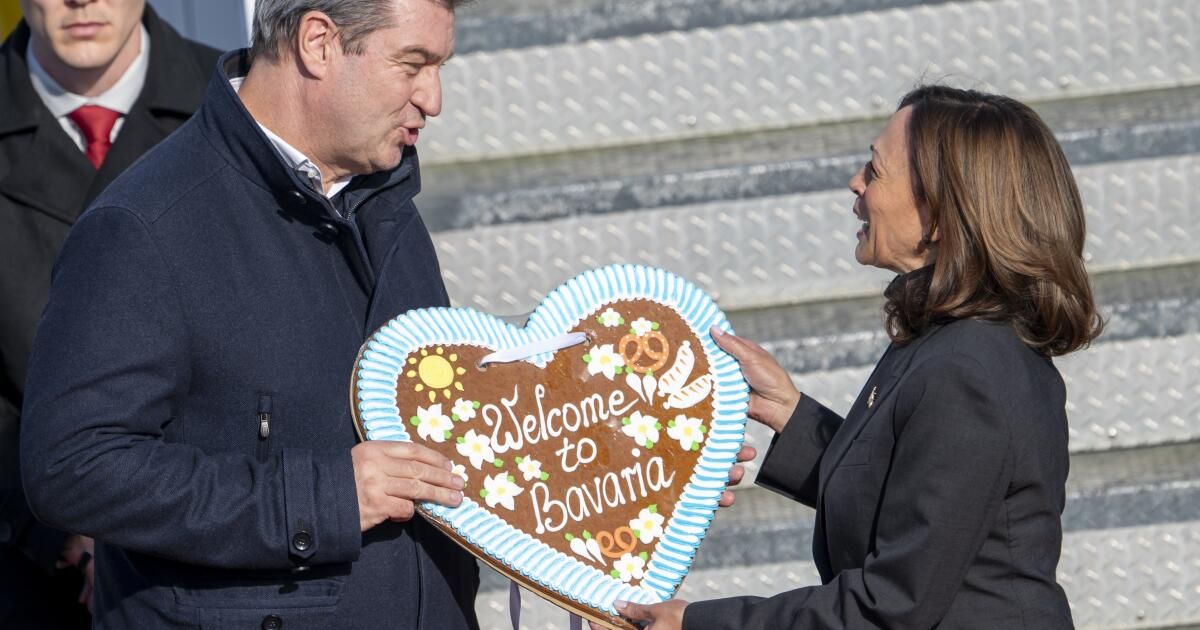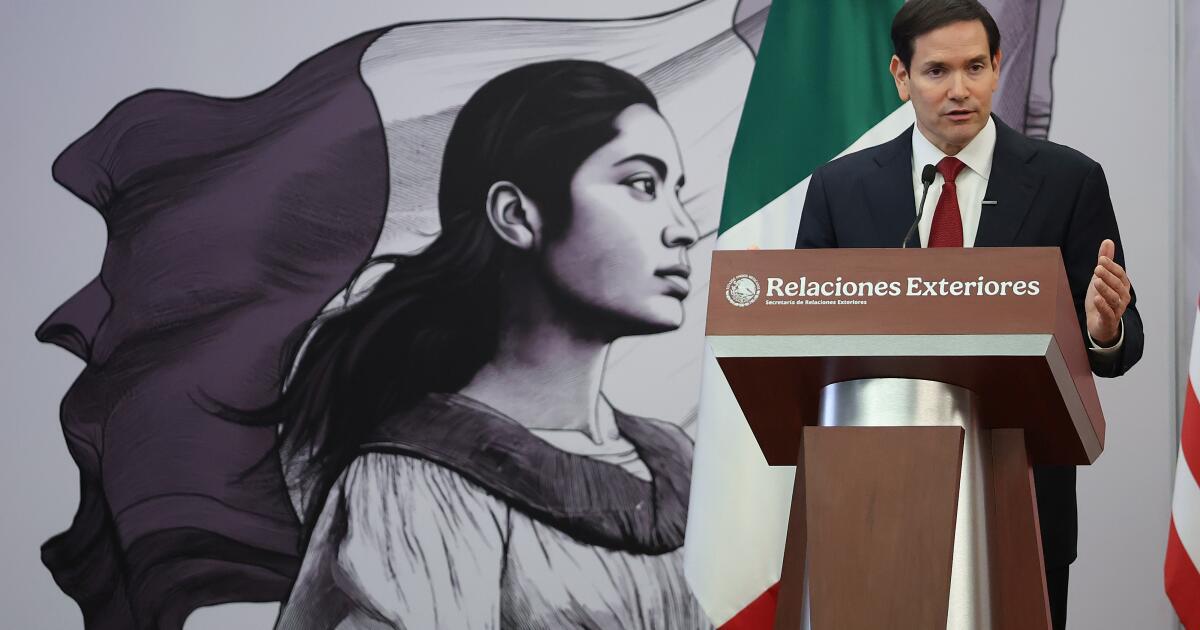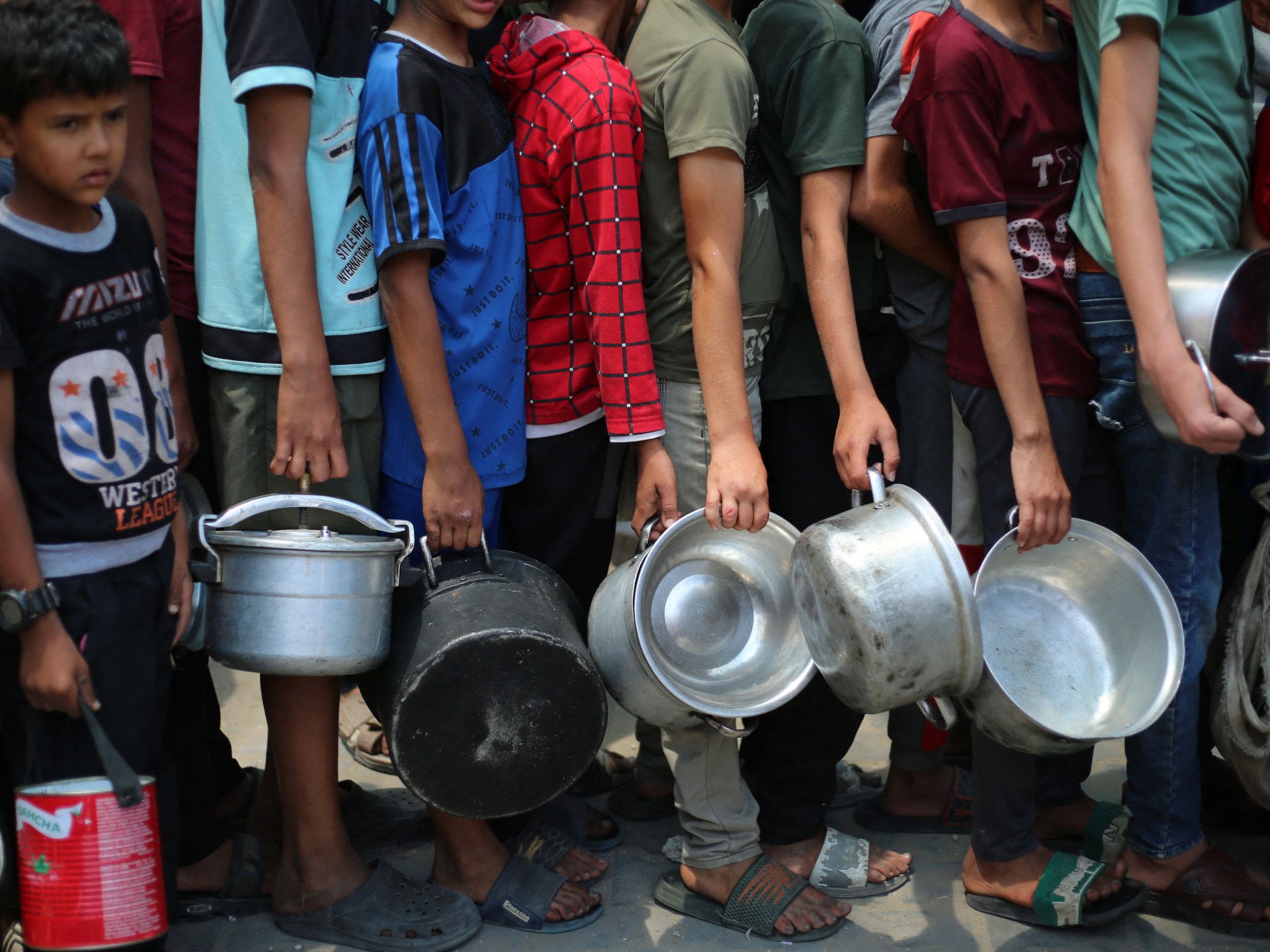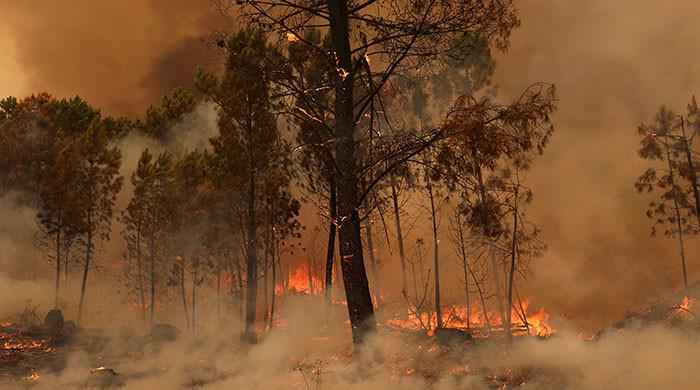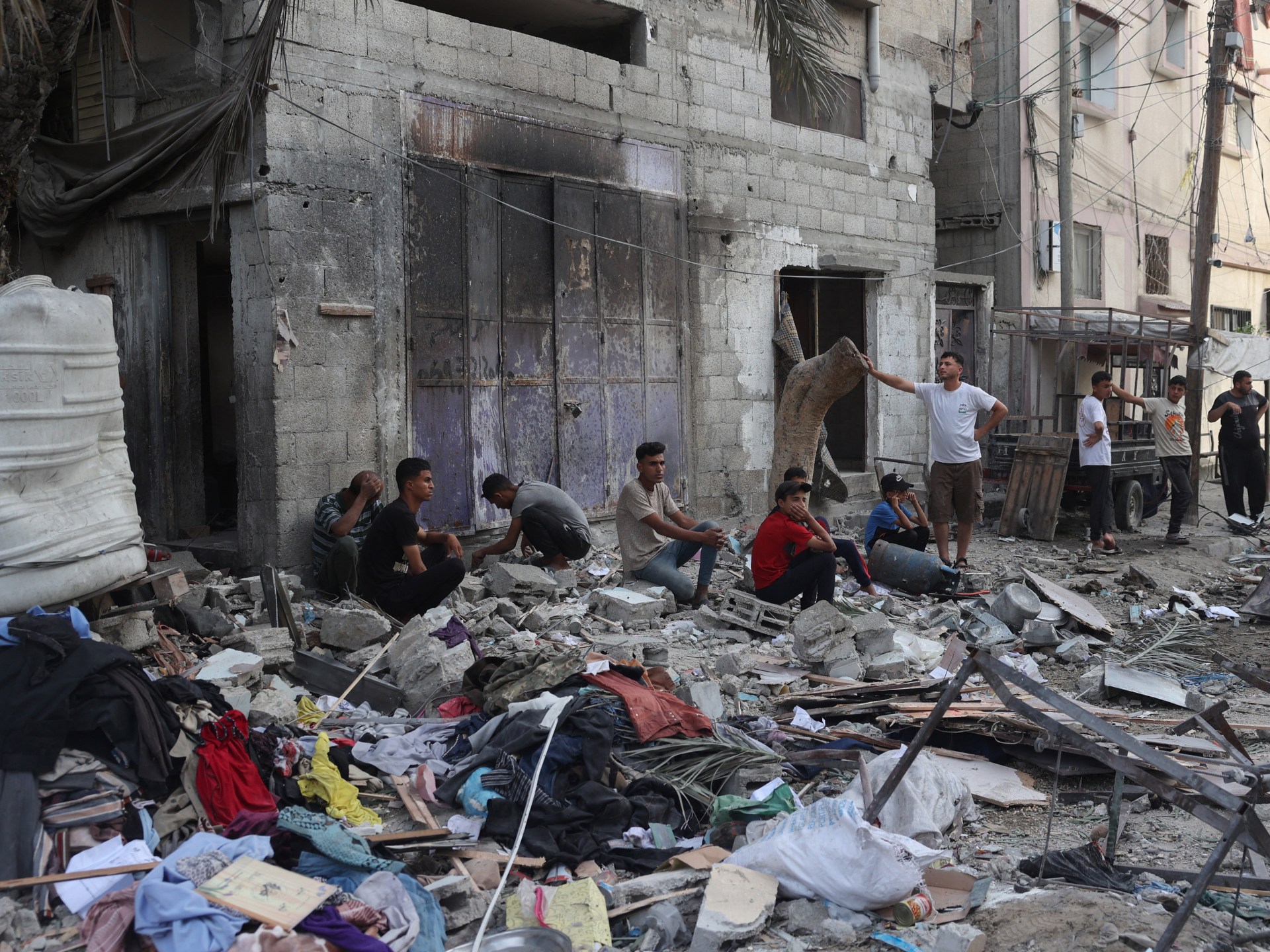With Kamala Harris formally nominated as the Democratic presidential candidate, European allies are relieved by what they see as the receding threat of another Donald Trump presidency, but an undercurrent of anxiety persists.
Just six weeks ago, when the former president was riding high in the polls after a triumphant Republican convention, the recurring theme at high-level European meetings was how to “protect Trump” from institutions he had often dismissed as ineffective or branded as direct adversaries, including NATO and the European Union.
With Democrats rapidly consolidating behind Harris following President Biden’s withdrawal from the race, the almost frenetic tone of such discussions has largely subsided and the conversation has turned to what to expect from a US administration led by her.
Analysts say European leaders and policymakers generally believe that if Harris prevails in November, there will be crucial continuity in relations with the continent's main blocs (the North Atlantic Treaty Organization and the EU), as well as a continuation of the cordial bilateral ties cemented by Biden.
And the assessment on this side of the Atlantic is that a victorious Harris would continue to throw the full weight of the United States behind a key European project: helping Ukraine in its fight against Russia, which launched a full-scale invasion of its neighbor in February 2022.
But beyond those broad parameters, things get a little more uncertain.
First, no one wants to be overconfident about the possibility of a Harris victory. Trump’s tumultuous presidency was something of a trauma for America’s closest allies in Europe, starting with his surprise election in 2016. During his tenure, he showed indifference to the notion of shared transatlantic interests and values and adopted a surprisingly deferential tone toward Russian President Vladimir Putin.
Trump’s highly transactional view of international alliances has been on full display during the current campaign against Harris. “They don’t do anything for us,” he said Wednesday at a rally in North Carolina, referring to U.S. allies.
European anxiety about the possibility of a repeat performance by Trump has diminished, but with the race still considered close, it has not disappeared entirely.
“He could still win, after all,” said Staffan Lindberg, a political scientist and director of the V-Dem Institute at the University of Gothenburg in Sweden, who has described Trump as a grave threat to democracy. “Everyone is aware of that.”
During his presidency, Donald Trump projected indifference toward the notion of shared transatlantic interests and values and adopted a surprisingly deferential tone toward Russian President Vladimir Putin.
(Carlos Osorio / Associated Press)
The alarm over Trump that was raised earlier this summer may have had some beneficial effects, said Liana Fix, a Europe fellow at the Council on Foreign Relations. Policymakers may now stop drawing up plans for Europe to take more responsibility for its own defense and return to “getting too comfortable” by relying on the United States.
And the quiet glee at Harris’s apparent growing strength is not universal across Europe, where far-right political movements have been largely reined in in recent elections but continue to pose a substantial challenge to traditional political parties.
Far-right leaders in Europe were excited earlier this summer by the prospect of an easy Trump victory, analysts said, while a Harris win would serve to dampen any sense of transatlantic momentum among populist-nationalist figures.
“You're going to have your [Viktor] “Orbans expects a different outcome than others,” Lindberg said, referring to the Hungarian prime minister, an avowed Trump acolyte whose decade and a half in power has been marked by a sharp erosion of democratic norms in his country and, more recently, by his efforts to undermine European support for Ukraine.
Despite near-solid unanimity among NATO allies on aid to Ukraine, the picture has become more complicated as the war drags on.
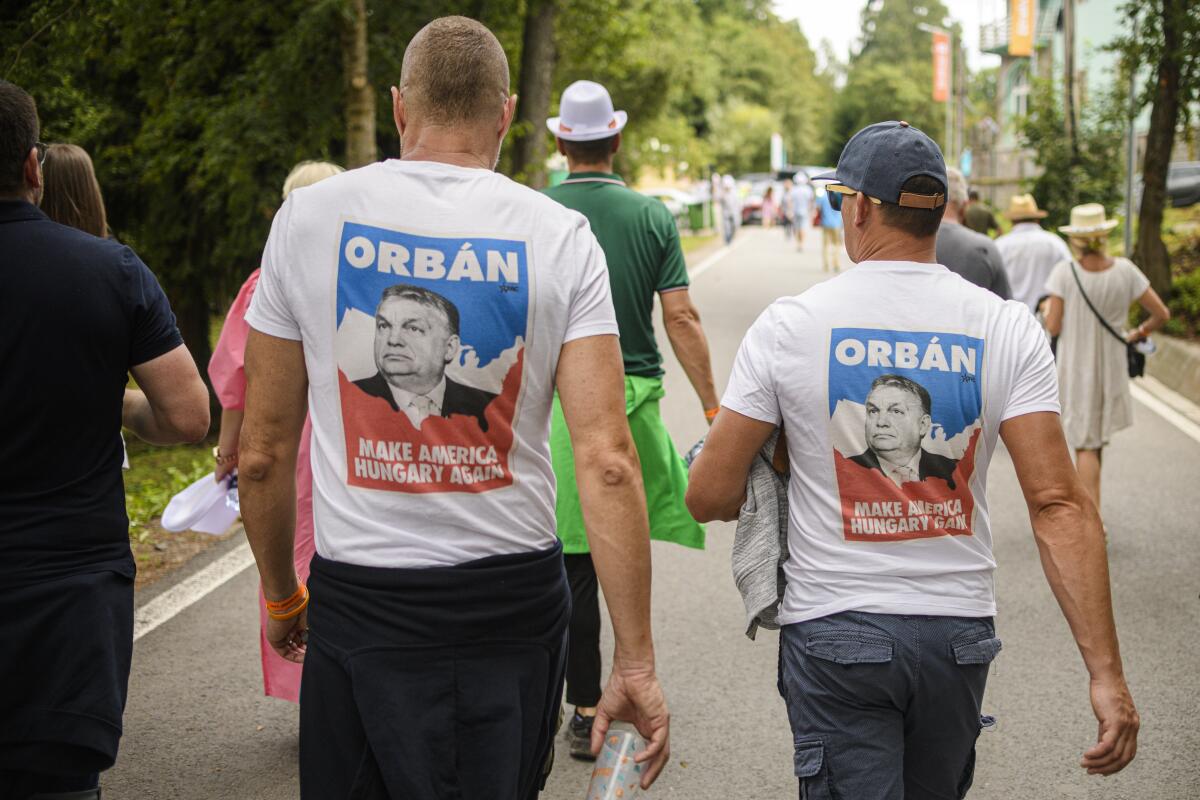
Two men wear T-shirts bearing the image of Hungarian Prime Minister Viktor Orban and the words “Make America Hungary Again” after the far-right leader spoke last month in Baile Tusnad, Romania.
(Alexandru Dobre / Associated Press)
Putin's full-scale invasion will enter its fourth year shortly after a new US administration is inaugurated in January. In some allied states, notably Germany, there has been a retreat in willingness to continue funding Western efforts to stem the Russian onslaught.
Ukraine, for its part, has shown growing impatience with what it sees as a pattern of the West providing just enough weaponry to prevent a Russian takeover, but not enough to win the war. There has been particular tension over U.S.-imposed limits on Ukraine's use of long-range weapons that can reach inside Russia.
Ukraine’s audacious incursion into Russian territory two weeks ago, of which neither Washington nor European allies were informed in advance, underlined that sense of frustration in kyiv. President Volodymyr Zelensky on Monday criticised restrictions on the use of foreign-supplied weapons, calling the reasons for such restrictions “naive” and “illusory”.
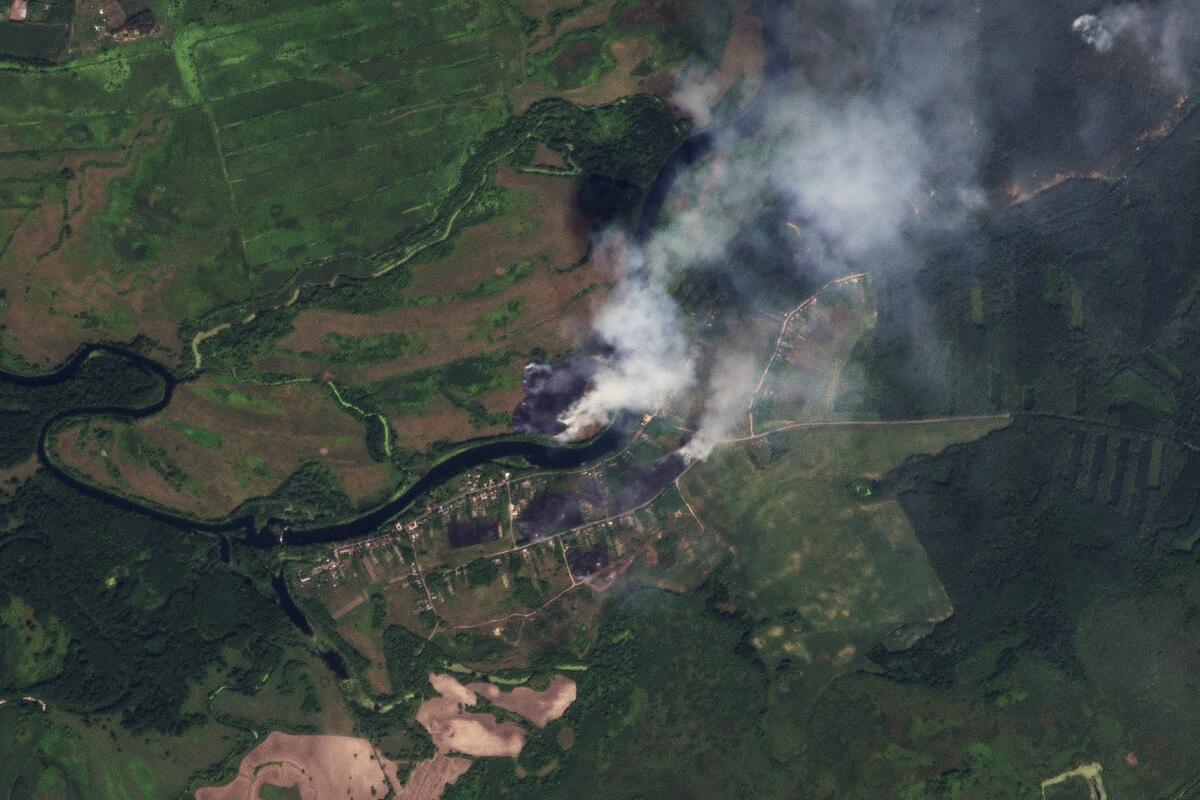
Fires broke out near the town of Krasnooktyabrskoe in Russia's Kursk region on Tuesday. Ukraine's bold incursion into Russian territory, which was not reported to Washington or its European allies in advance, has highlighted a sense of frustration in Kiev.
(Planet Labs PBC/Associated Press)
European leaders may also be hoping to see a greater willingness from a future Harris administration to act more forcefully to pressure Israeli Prime Minister Benjamin Netanyahu to end the war in Gaza, where the Palestinian death toll has surpassed 40,000, according to health officials in Gaza. More than a third of the 27 EU members recognise the state of Palestine, something Washington does not.
So far in her short campaign, Harris has publicly reiterated Biden's support for Israel, but has also referred to the humanitarian catastrophe in Gaza. In the coming weeks, pressure is likely to mount for her to say more on the issue.
“We don't really know yet what his position on the Middle East will be,” Lindberg said.
This week saw a repeat of what has become a dispiriting diplomatic sequence: American hopes for a ceasefire deal that would allow the release of hostages held by Hamas rose and then faded, while Israeli critics of Netanyahu accused him of deliberately torpedoing any agreement.
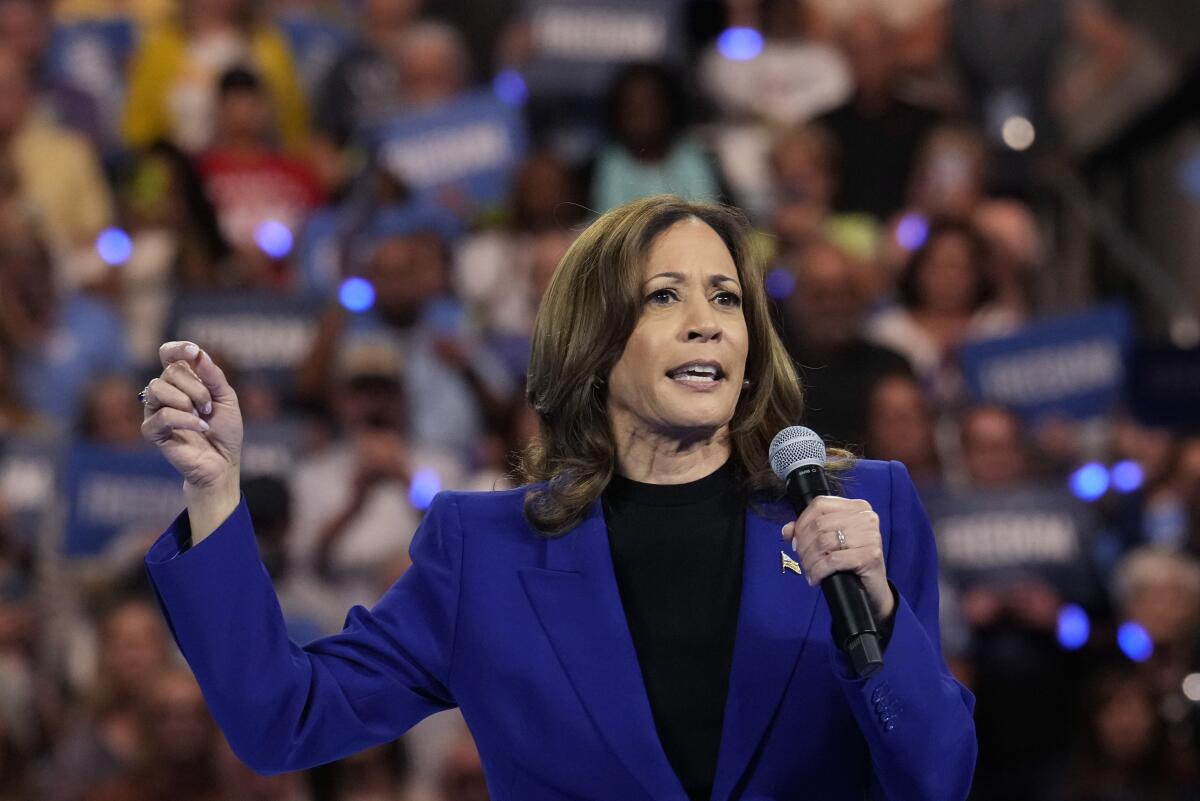
Vice President Kamala Harris speaks at a campaign rally in Milwaukee on Tuesday.
(Jacquelyn Martin/Associated Press)
If Harris becomes president, she is at least a familiar figure to Europeans, having met with many senior leaders and policymakers at high-profile events such as the Munich Security Conference, which she attended in February. But a vice president is never the main interlocutor with Europe: that was always Biden.
Given this, analysts suggested that it would take some time for Europeans to understand it, and vice versa.
“There’s a certain level of familiarity built in, but it has its limits,” Lindberg said. “Right now, you can be sure that everyone is trying to find out as much as they can about her, as quickly as possible.”

